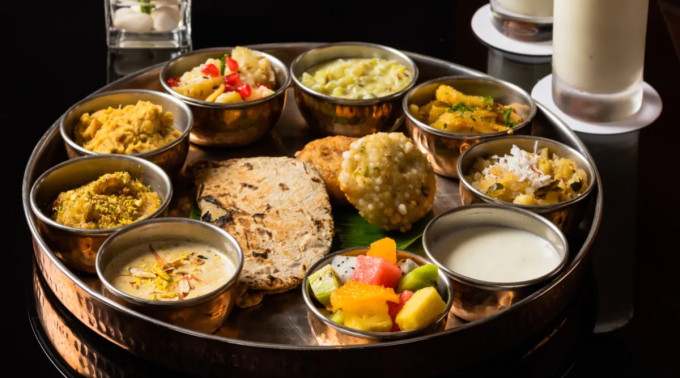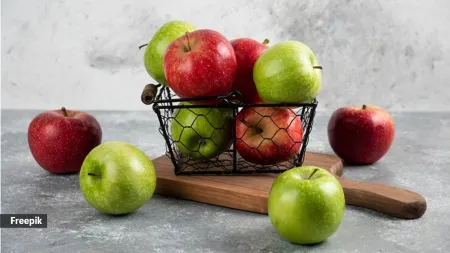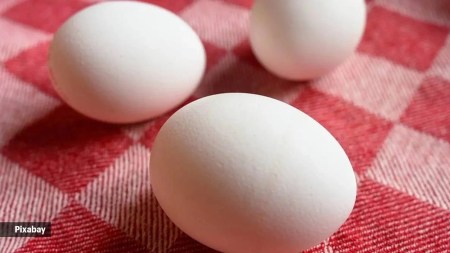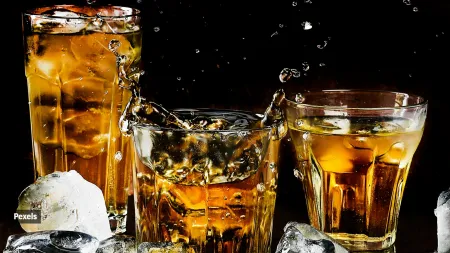Navratri fasts: 6 food groups you must completely avoid
The vibrant festival of Navratri brings with it nine days of devotion, cultural immersion, and, for many, a period of fasting. While the specifics may vary, many devotees choose to abstain from certain foods during this time. But with so many delicious options to explore, what exactly should you avoid to maintain good health and energy throughout the fast?
G Sushma, clinical dietician, CARE Hospitals, Banjara Hills, Hyderabad, explained that just as preparing oneself nutritionally in advance for Navratri is important; so is taking care of yourself while you’re fasting for the duration of the festival.

“By nourishing the body with wholesome foods beforehand, individuals can maintain steady energy levels, preventing feelings of weakness or fatigue commonly associated with fasting. Consuming a diverse range of nutrient-rich foods can ensure individuals meet their daily requirements for vitamins, minerals, and essential macronutrients. This reduces the likelihood of experiencing deficiencies that may compromise health and well-being during the fast,” said Sushma in an interaction with indianexpress.com.
 Prepared using rock salt, the Navratri thali at Tuskers features an array of satvik dishes, from sabudana vada to rotis made from kuttu (buckwheat) atta.
Prepared using rock salt, the Navratri thali at Tuskers features an array of satvik dishes, from sabudana vada to rotis made from kuttu (buckwheat) atta.
6 food groups that nutritionally harm you while fasting for Navratri
Sushma provided a detailed breakdown of five types of foods that should be avoided during Navratri fasting due to their potential nutritional drawbacks:
Processed Foods: Navratri fasting encourages the consumption of natural, unprocessed foods. Processed foods, laden with additives, preservatives, and artificial ingredients, are typically shunned. These foods often lack essential nutrients and can be detrimental to overall health. Instead, the focus is on whole foods in their purest form to ensure the body receives vital nutrients without the burden of synthetic additives.
Refined Carbohydrates: Foods made from refined grains, such as white rice, white flour, and their derivatives like bread and pasta, are discouraged during Navratri fasting. These refined carbohydrates cause rapid spikes in blood sugar levels, followed by subsequent crashes, leaving individuals feeling lethargic and hungry. By opting for whole grains or alternatives like buckwheat flour (kuttu), individuals can sustain energy levels more effectively while fulfilling their fasting requirements.
Fried Foods: While deep-fried delicacies may be tempting, they are often rich in unhealthy fats and excess calories. During Navratri fasting, it’s advisable to steer clear of fried foods to avoid unnecessary strain on the digestive system and potential weight gain. Moreover, the high temperatures used in frying can lead to the formation of harmful compounds, further compromising nutritional integrity. Instead, cooking methods such as boiling, steaming, or baking are preferred for preserving the nutritional quality of foods.
Sugary Treats: Navratri fasting encourages mindful eating, with an emphasis on avoiding foods high in added sugars. Sweet treats like candies, desserts, and sugary beverages are sidelined due to their potential to disrupt blood sugar levels and contribute to health issues such as weight gain and tooth decay. Individuals opting for fasting during Navratri are encouraged to satisfy their sweet cravings with naturally sweet fruits or homemade treats prepared with minimal sweeteners.
Highly Spicy Foods: While spices play a pivotal role in Indian cuisine, consuming overly spicy foods during Navratri fasting may pose challenges to digestive health. Excessive spice levels can irritate the stomach lining and lead to discomfort, particularly when consumed on an empty stomach. Therefore, it’s recommended to exercise moderation in spice usage or opt for milder alternatives to ensure digestive comfort throughout the fasting period.
Caffeine and Carbonated Drinks: Given that fasting already involves abstaining from food and drink for extended periods, maintaining hydration is crucial for overall health and well-being. Caffeine’s stimulating effects may disrupt the calm and introspective state sought during fasting. Carbonated drinks, on the other hand, can cause bloating and discomfort due to the carbon dioxide gas they contain. Opting for hydrating alternatives like water and herbal teas ensures better hydration and supports a more comfortable fasting experience.
Disclaimer: The copyright of this article belongs to the original author. Reposting this article is solely for the purpose of information dissemination and does not constitute any investment advice. If there is any infringement, please contact us immediately. We will make corrections or deletions as necessary. Thank you.





